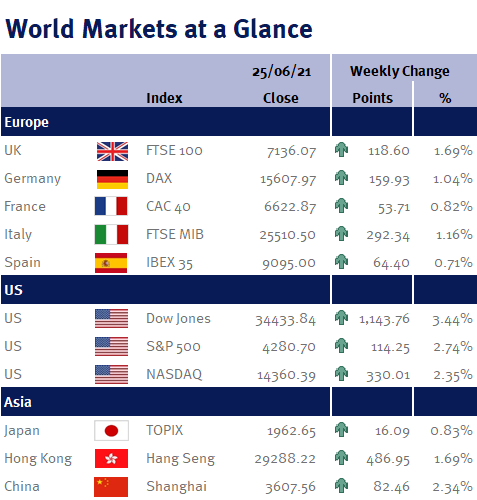After last week’s ‘dot plot’ shocker from the US central bank, all eyes were on this week’s UK monetary policy meeting and US PCE reading.
Thankfully, the Fed’s hawkishness was not endorsed by policymakers at the BoE, which left both interest rates and its asset-purchase (QE) target unchanged at £875bn.
Better still, policymakers were effectively all in agreement: although the vote wasn’t unanimous, it was 8-1 as the outgoing Andy Haldane again dissented, but as he is leaving the BoE it is entirely possible that the vote becomes unanimous at the BoE’s next meeting on Thursday 5 August 2021.
And this voting margin tells us that policymakers thankfully aren’t in any rush to increase UK interest rates and therefore see the current inflation as transitory. We believe that this is very positive (and sensible) given the uncertainties surrounding the unwinding of the job-retention (furlough) scheme in September (which may see unemployment rise); UK/EU trade tensions; and of course the current uptick in coronavirus infections.


